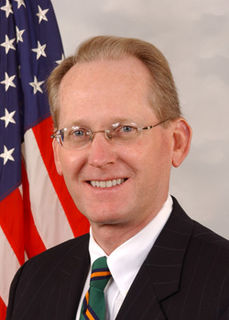A Quote by Prashant Bhushan
Since environmental and health damage is not factored into reducing GDP - and in fact the resulting health costs and the costs of cleaning up the environment would also inflate GDP, a GDP obsessed government would try and dismantle environmental and health regulations.
Related Quotes
Imposing excessive new regulations, or closing coal-fired power plants, would produce few health or environmental benefits. But it would exact huge costs on society - and bring factories, offices and economies to a screeching halt in states that are 80-98% dependent on coal: Indiana, Kentucky, Missouri, North Dakota, Ohio, Utah, West Virginia and Wyoming.
What the Affordable Care Act started was a change in the American health care system from paying for procedures to paying for outcomes, paying for health. Other nations have already made that move. We pay for procedures and we get the best procedures in the world and we get the most procedures in the world, and then we spend a huge chunk of our GDP on health care, but we don't have the best outcomes.


































